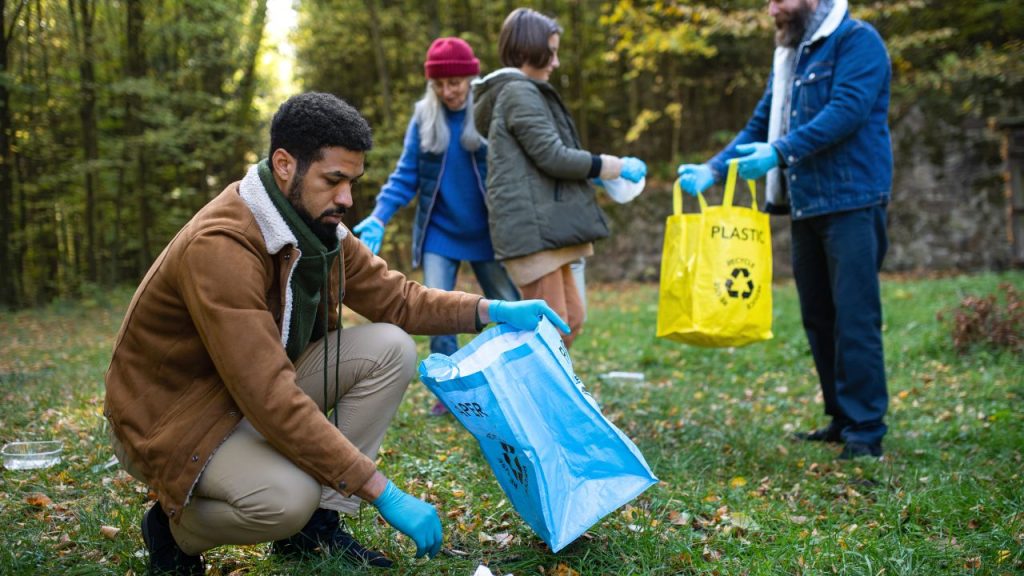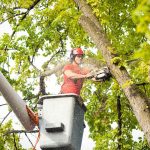Table of Contents
The Impact of Environmental Services in Wilmington, NC: A Local Perspective
In Wilmington, NC, environmental services play a vital role in shaping the community’s ecological footprint. These services encompass a range of activities designed to protect natural resources, promote sustainability, and enhance the quality of life for residents. Understanding the impact of these services can help local stakeholders realize their importance and support initiatives that benefit both the environment and the citizens of Wilmington.
Waste Management and Recycling
One of the primary environmental services in Wilmington is efficient waste management. The city has implemented robust recycling programs that encourage residents and businesses to reduce landfill waste. This not only conserves resources but also minimizes the negative impacts on the environment. Here’s a brief overview of Wilmington’s waste management initiatives:
- Single-Stream Recycling: Encourages residents to combine recyclables into one bin, making it easier for everyone to participate.
- Yard Waste Collection: Regular pickups allow residents to dispose of yard debris responsibly.
- Household Hazardous Waste Events: Offering residents safe ways to dispose of harmful substances.
Water Quality and Conservation
The protection of water quality is another essential aspect of environmental services. Wilmington has various programs aimed at conserving water and maintaining its quality:
- Water Quality Monitoring: Assessing local water bodies to ensure safety and compliance with standards.
- Water Conservation Programs: Initiatives designed to encourage residents to use water efficiently.
Environmental Education and Community Engagement
Education is crucial in promoting environmental awareness. Wilmington’s environmental services coordinate outreach programs aimed at educating residents about sustainability practices. These initiatives often include:
- Workshops on composting and reducing plastic use.
- School programs to instill environmentally friendly habits in young minds.
- Community clean-up events to foster local stewardship.
These programs not only foster awareness but also build a sense of community as residents come together to protect shared resources. By involving individuals in local environmental issues, Wilmington reinforces the idea that everyone plays a part in nurturing the environment.
Climate Resilience Initiatives
Climate change poses significant challenges for coastal cities like Wilmington. The local government has prioritized initiatives to bolster community resilience through environmental services. Examples of these initiatives include:
- Coastal Resilience Planning: Developing strategies to mitigate the effects of rising sea levels and storms.
- Green Infrastructure Projects: Implementing solutions such as rain gardens and permeable pavements that manage stormwater effectively.
These programs increase the city’s capacity to withstand environmental stresses while promoting sustainable practices. Investments in green infrastructure not only protect against flooding but also enhance urban aesthetics and biodiversity.
Collaboration with Local Businesses
Another key impact of environmental services involves collaboration with local businesses. Many organizations in Wilmington recognize their responsibility towards environmental sustainability. They participate in programs that support greener practices, such as:
- Eco-Friendly Certifications: Helping businesses achieve recognition for sustainable practices.
- Waste Reduction Programs: Working together to minimize waste through shared resources and infrastructure.
This partnership fosters a culture of sustainability and demonstrates that economic growth can coexist with environmental stewardship.
| Environmental Service | Description | Impact on Community |
|---|---|---|
| Waste Management | Recycling and waste reduction programs | Lower landfill use, resource conservation |
| Water Conservation | Programs promoting efficient water use | Better water quality, reduced consumption |
| Community Engagement | Educational outreach and events | Increased awareness, community ownership |
| Climate Resilience | Strategies for mitigating climate impacts | Enhanced safety, protection of resources |
Through these various efforts, environmental services in Wilmington, NC, create a ripple effect that fosters a healthier, more sustainable community. The collaboration among government, citizens, and businesses is intrinsic to the shaping of a greener future.
By continuing to advocate for sustainable initiatives, Wilmington can serve as a successful model for other communities looking to make a positive environmental impact.
Key Providers of Environmental Services in Wilmington, NC: An Overview
Wilmington, North Carolina, stands out as a vibrant city that places immense importance on environmental services. Several key providers in this sector help ensure the city’s sustainability and ecological health. This overview highlights notable companies and organizations dedicated to environmental well-being.
1. Ecological Inspections, Inc. – Specializing in environmental assessments and remediation, this company focuses on protecting public health through thorough site evaluations and effective solutions for contaminated lands. They provide services such as land surveys, environmental impact assessments, and hazardous waste management.
2. Iroquois Environmental Services – This provider offers a suite of environmental consulting services, including compliance assessments, environmental reporting, and waste management. Their commitment to corporate environmental responsibility helps businesses align with state and federal regulations.
3. Triangle Environmental Health – This firm focuses on indoor air quality testing, mold assessments, and lead hazard evaluations. They help both residential and commercial clients create safer, healthier environments through their expert analysis and remediation processes.
4. Frontline Environmental – With a strong focus on waste management solutions, Frontline Environmental provides both residential and commercial waste removal services. Their eco-friendly approach ensures that solid waste disposal follows guidelines aimed at reducing the environmental impact of landfill waste.
5. City of Wilmington Environmental Services – The city itself offers robust environmental services aimed at maintaining the health of local ecosystems. This includes waste reduction programs, stormwater management strategies, and community involvement initiatives designed to boost public awareness about environmental sustainability.
6. North Carolina Department of Environmental Quality (NCDEQ) – This state-level agency coordinates with local services and providers to address environmental concerns statewide. They oversee compliance with environmental laws and regulations and provide valuable resources for residents, businesses, and environmental service providers alike.
Many of these organizations collaborate with local businesses, educational institutions, and communities to promote environmental awareness and stewardship. Their combined efforts play a vital role in addressing Wilmington’s unique environmental challenges. Here’s a quick glance at some solutions they provide:
| Service | Description | Provider |
|---|---|---|
| Environmental Assessments | Thorough evaluations to identify potential environmental hazards. | Ecological Inspections, Inc. |
| Mold and Indoor Air Quality Testing | Testing for mold spores and air contaminants in homes and businesses. | Triangle Environmental Health |
| Waste Management | Residential and commercial waste removal tailored to eco-friendly practices. | Frontline Environmental |
| Compliance Services | Guidance for businesses to abide by state and federal environmental regulations. | Iroquois Environmental Services |
| Community Environmental Programs | Initiatives aimed at raising awareness and engagement in environmental practices. | City of Wilmington |
The growth of awareness around environmental issues in Wilmington reflects a community that cares deeply about its natural surroundings. Providers in environmental services not only contribute to safeguarding the environment but also educate the community about sustainable practices. By leveraging advanced methodologies and collaborative strategies, they work towards a cleaner, greener Wilmington.
Individuals and organizations aiming to engage with these environmental services should consider assessing their specific needs. Whether it’s a comprehensive environmental assessment or guidance on compliance with environmental laws, Wilmington’s providers offer solutions tailored to various challenges. The collective effort to enhance urban sustainability sets a precedent for other cities to follow as they navigate the complexities of modern environmental challenges.
For additional resources about environmental services in Wilmington, explore these valuable links:
- Ecological Inspections, Inc.
- Iroquois Environmental Services
- Triangle Environmental Health
- Frontline Environmental
- City of Wilmington Environmental Services
In the dynamic field of environmental services, Wilmington’s providers exemplify best practices, ensuring that the city remains a beautiful and healthy place for current and future generations.
Emerging Trends in Environmental Sustainability and Their Relevance to Wilmington
Wilmington, North Carolina, is experiencing a dynamic shift towards environmental sustainability. As the global climate crisis intensifies, local communities are stepping up to adopt innovative practices that not only safeguard their natural environment but also promote economic growth. Wilmington is at the forefront of these emerging trends, which have local and broader implications for sustainability.
Green Building Practices
One of the most significant trends in Wilmington is the rise of green building techniques. The emphasis on energy-efficient buildings helps combat climate change while also reducing utility costs for residents. These buildings utilize sustainable materials and designs that adhere to strict energy efficiency guidelines, such as LEED (Leadership in Energy and Environmental Design) certification.
Benefits of Green Buildings
- Lower energy bills due to enhanced efficiency
- Improved indoor air quality for residents
- Increased property values
- Conservation of natural resources
Waste Reduction Initiatives
Wilmington is also adopting waste reduction initiatives that aim to minimize landfill waste. The city is encouraging residents and businesses to engage in recycling and composting programs. This shift is critical in moving toward a circular economy where products are reused and repurposed.
Key Waste Reduction Programs
- Single-Stream Recycling: Makes recycling easier by allowing all recyclables to be placed in one bin.
- Composting Programs: Reduces organic waste and enriches local soils.
- Community Clean-Up Events: Engages residents in maintaining clean public spaces.
Renewable Energy Adoption
The transition towards renewable energy sources is gaining momentum in Wilmington. Solar energy, in particular, is becoming increasingly popular. With the coastal city’s abundant sunlight, businesses and homeowners are investing in solar panels.
Impact of Renewable Energy
- Reduced dependence on fossil fuels
- Lower energy costs for consumers
- Boost in local job creation in the renewable sector
Water Conservation Techniques
Wilmington is also focusing on water conservation, particularly in light of increasing demand and changing climate patterns. Techniques such as rainwater harvesting and xeriscaping help to conserve this valuable resource.
Water Conservation Methods
- Rain Barrels: Collect rainwater for irrigation and gardening.
- Xeriscaping: Landscaping that reduces water needs by using drought-resistant plants.
- Efficient Irrigation Systems: Utilize smart technology to minimize water waste.
Community Engagement and Education
Raising awareness of environmental issues is crucial for fostering change. Wilmington’s non-profits and educational institutions are actively engaging the community through workshops, seminars, and volunteer programs aimed at environmental stewardship.
Organizations to Watch
Urban Agriculture
The rise of urban agriculture is another emerging trend in Wilmington. Community gardens and local farms are sprouting up as residents recognize the importance of local food systems. This movement promotes food security and connects people with their environment.
Advantages of Urban Agriculture
- Improved access to fresh produce
- Encourages community building
- Reduces carbon footprint through localized food production
Emerging trends in environmental sustainability are reshaping Wilmington, NC, and its impact can be seen far beyond its borders. As the community adopts innovative practices, it not only addresses pressing environmental concerns but also fosters economic resilience and social bonds. The collaborative efforts of residents, local businesses, and government strategies will play a pivotal role in ensuring the city remains a leader in sustainability.
Community Involvement in Environmental Services: How Wilmington Residents Can Make a Difference
Wilmington, NC, is known for its beautiful landscapes, vibrant communities, and commitment to environmental sustainability. Residents play a crucial role in supporting environmental services by coming together to promote healthy ecosystems. Below are several ways Wilmington residents can engage actively in these efforts and make a significant difference in their community.
Volunteer for Local Clean-Up Events
Participating in clean-up efforts is a hands-on way for residents to contribute to preserving Wilmington’s natural beauty. Numerous organizations regularly host clean-up events for local parks, beaches, and waterways. Volunteering at these events not only enhances community spirit but also helps protect local wildlife.
- Beaches: Organizations like EcoAction frequently organize beach clean-ups aimed at reducing plastic waste.
- Parks: Groups such as Wilmington Parks and Recreation invite volunteers to assist in maintaining local parks and trails.
- Waterways: The North Carolina Coastal Federation conducts efforts to remove debris along rivers and creeks.
Adopt Sustainable Practices at Home
By making small changes in their homes, residents can reduce their environmental footprint. Here are some practices that can easily be adopted:
- Composting: Start a compost bin to reduce food waste and create nutrient-rich soil for gardens.
- Water Conservation: Install low-flow fixtures and consider drought-resistant plants in landscaping to save water.
- Recycling: Familiarize yourself with local recycling guidelines to minimize landfill waste.
Participate in Local Environmental Groups
Connecting with local environmental groups enables residents to stay informed about current initiatives and advocate for sustainable policies. Here are some noteworthy organizations:
- Wilmington Environmental Advisory Board focuses on local policies and sustainability efforts.
- The Nature Conservancy provides various programs that allow volunteers to participate in conservation activities.
- North Carolina State Parks often needs volunteers for trails and maintenance projects.
Support Local Farmers and Sustainable Agriculture
Wilmington residents can contribute to environmental health by supporting local farms and markets. Here are effective ways to do this:
- Farmers Markets: Visit local farmers markets, such as the Wilmington Downtown Farmers Market, to buy fresh produce and reduce carbon footprints.
- Community Supported Agriculture (CSA): Join a CSA for seasonal produce; this helps local farmers and decreases reliance on mass-produced food.
Advocate for Sustainable Policies
Engagement in local governance can lead to impactful environmental policies. Residents can participate more effectively through:
- Public Meetings: Attend city council meetings to voice opinions and learn about proposed initiatives.
- Petitions: Start or sign petitions advocating for greener policies, such as increased green spaces or improved waste management.
Get Educated and Spread Awareness
Education is vital for fostering a culture of sustainability in Wilmington. Here are some ways individuals can educate themselves while spreading awareness:
- Workshops and Seminars: Participate in community workshops on sustainability topics hosted by organizations like Cape Fear Community College.
- Social Media Campaigns: Share relevant environmental information on personal social media channels to encourage more involvement from peers.
Wilmington residents can significantly contribute to environmental services by taking active steps within their community. Whether through volunteering, adopting sustainable practices, or participating in local organizations, everyone has a role to play in ensuring a greener and healthier Wilmington. The combined efforts of individuals can lead to sustainable changes, benefiting both the environment and the community as a whole.
The Future of Environmental Services in Wilmington, NC: Challenges and Opportunities
The future landscape of environmental services in Wilmington, NC, blends vibrant opportunities with noteworthy challenges. With the region’s rich natural resources and growing population, understanding and addressing these dynamics is crucial for sustainable development. Businesses, residents, and local agencies must collaborate to harness the potential of environmental services effectively.
One of the most pressing challenges lies in the area of waste management. Wilmington’s population continues to grow, which translates to an increase in waste production. Local services must innovate to manage this surge efficiently. This means investing in advanced waste processing technologies and promoting recycling initiatives. For instance, Wilmington’s Waste Management aims to enhance community awareness about the importance of waste separation and recycling.
Water quality is another critical focus. Given Wilmington’s proximity to coastal waters, programs that ensure clean water supplies are vital. Pollution from storm runoff and industrial activity threatens marine ecosystems and public health. As part of mitigating these risks, organizations must invest in green infrastructure, which encourages sustainable water management practices. The North Carolina Division of Water Resources is leading various initiatives to ensure that water quality remains a top priority.
Renewable energy sources present a bright opportunity in Wilmington. As the city pushes towards clean energy, the demand for solar and wind energy services increases. The local community is becoming more receptive to sustainable energy solutions, creating ample prospects for businesses in this sector to grow. By integrating renewable energy projects, Wilmington can significantly reduce its carbon footprint. Companies like NC Department of Insurance are facilitating these sustainable practices through supportive policies and incentives.
Challenges and Opportunities in Environmental Services:
| Challenges | Opportunities |
|---|---|
| Increasing waste production | Investment in waste-to-energy technologies |
| Water pollution | Green infrastructure projects |
| Climate change impacts | Growth in renewable energy solutions |
| Regulatory compliance | Community-based environmental programs |
Additionally, Wilmington’s commitment to regulatory compliance plays a critical role in shaping its environmental services landscape. Striking a balance between industry growth and environmental protection not only helps local companies build a strong reputation but also ensures long-term sustainability. Implementation of stringent environmental regulations could encourage businesses to adopt eco-friendly practices, paving the way for a more resilient economy.
The local government’s role cannot be overstated. The synergy between public institutions and private enterprises can lead to innovative solutions for environmental issues. Engaging the community in decision-making processes, from planning to implementation, enhances accountability and encourages a collective approach toward rehabilitation efforts. Programs like NC Sustainable Energy Association work to promote this invaluable collaboration.
Public awareness and education are vital components in driving Wilmington’s environmental services forward. By enhancing community knowledge about sustainability practices and environmental issues, residents can become proactive participants in achieving a greener tomorrow. Workshops, seminars, and online resources—like those provided by NOAA Climate.gov—can facilitate this learning process.
To summarize, although Wilmington faces challenges in its environmental services sector, the potential for innovation and collaborative solutions is promising. Emphasizing initiatives that prioritize cleanliness, sustainability, and community engagement will lead the city toward a greener, more resilient future.
Conclusion
Wilmington, NC, is at a pivotal moment in its journey toward enhancing its environmental services. The city is embracing a strong push for sustainability while balancing economic growth with ecological responsibility. The impact of environmental services in this region cannot be understated; local organizations and government initiatives play a critical role in preserving Wilmington’s unique natural resources, from its lush parks to its picturesque coastline. This emphasis on environmental awareness creates a living legacy that benefits not just current residents but future generations as well.
Key providers of environmental services in Wilmington are vital players in this transformative process. Entities such as the City of Wilmington’s Environmental Services Division work diligently to manage waste, reduce pollution, and facilitate recycling programs. Private companies, non-profits, and community organizations further contribute to these efforts, bringing expertise and innovation to tackle environmental challenges. Their collaborative approach fosters a resilient community that understands the importance of safeguarding its environmental assets. Increased access to such services has empowered residents to engage more fully in sustainability practices, demonstrating how collective action can lead to meaningful change.
Emerging trends in environmental sustainability highlight the importance of Wilmington’s unique geographic and ecological features. The city’s coastal location underscores the impact of climate change, with rising sea levels and increased storm intensity posing real threats. However, Wilmington is not just a passive observer; it actively engages with innovative solutions such as green infrastructure, which can help mitigate flooding and improve water quality. Efforts to incorporate renewable energy sources, like solar initiatives and wind projects, signify a recognition of the need for clean energy solutions that benefit the economy and preserve the environment. By embracing these emerging trends, Wilmington positions itself as a leader in sustainability, showcasing how communities can respond tangibly to pressing environmental issues.
Community involvement is perhaps the cornerstone of meaningful environmental services in Wilmington. Residents are increasingly recognizing that their everyday actions can significantly influence their surroundings. Events like local clean-up days, tree planting initiatives, and educational workshops empower individuals to take ownership of their environment. Programs promoting citizen science encourage regular citizens to take part in data collection and monitoring efforts, bolstering the community’s role in scientific understanding. This localized approach not only enhances public awareness but also fosters a sense of stewardship, supporting the notion that every resident can contribute to a healthier ecosystem.
As Wilmington looks to the future, it faces a mixed landscape of challenges and opportunities. Climate change and population growth present hurdles that require strategic thinking and proactive measures. However, these challenges also serve as catalysts for innovation and adaptation. Investing in green technologies, modern waste management practices, and sustainable urban planning creates pathways for economic development that aligns with environmental stewardship. Collaboration among local governments, businesses, and residents is essential to tackle these challenges head-on, facilitating solutions that are both equitable and effective.
The future of environmental services in Wilmington, NC, will rely heavily on the community’s commitment to fostering a sustainable environment. This encourages a vibrant discussion about the role of residents in shaping their future. Active participation leads to informed decision-making that recognizes the interconnectedness of human activity and the natural world. Through education, outreach, and accessible programs, Wilmington can nurture a culture of sustainability that resonates across demographics, encouraging even the youngest residents to value and advocate for the environment.
In sum, Wilmington, NC, stands as a beacon of potential in the realm of environmental services. The collaborative efforts of key providers, innovative trends, active community participation, and the willingness to confront challenges position Wilmington as a model for other cities grappling with similar issues. As environmental awareness deepens and participation grows, Wilmington can effectively translate its vision for environmental sustainability into tangible actions. This combination of local perspective, engagements, and challenges faced will shape a brighter, greener future for all who call Wilmington home — proving that when a community comes together, they can make lasting change.








